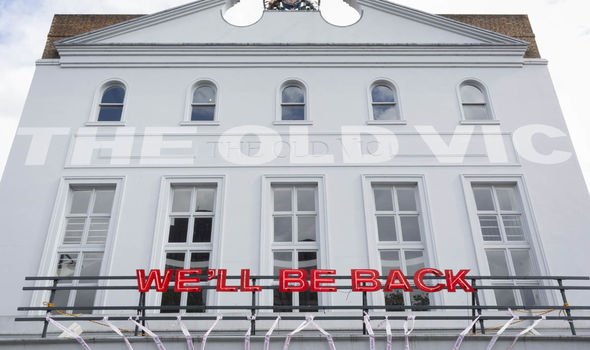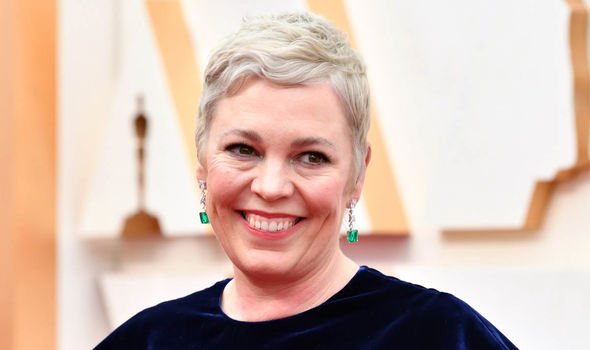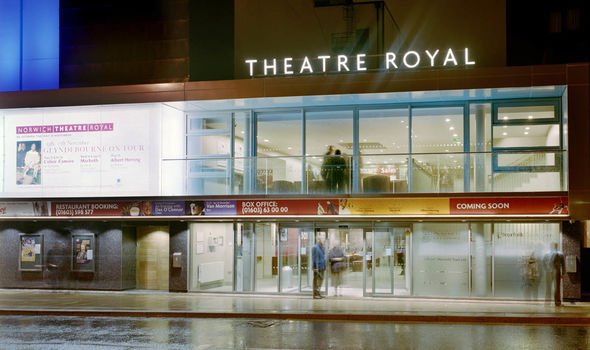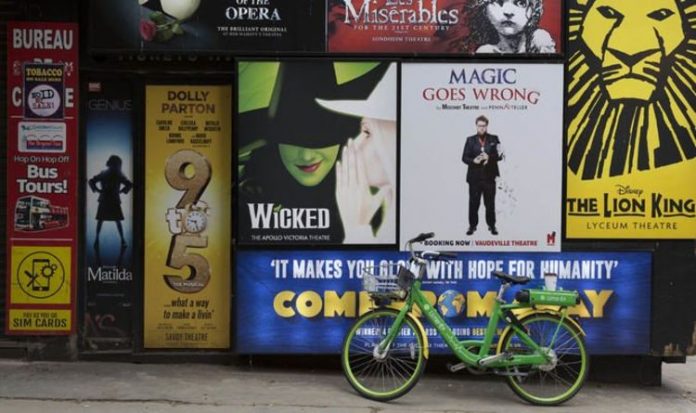Grants of up to £3 million have been awarded to save 35 of the country’s most iconic venues – with 70 per cent of the funding awarded to organisations based outside London. The cash bonanza marks the largest awards from the £1.57bn Culture Recovery Fund and will see crucial handouts delivered to top venues including Manchester’s Royal Exchange, Leeds Playhouse, Shakespeare’s Globe, and Birmingham Repertory Theatre. Famous organisations receiving today’s news have been essential stepping stones for some of the UK’s brightest stars including Adrian Lester, Abi Morgan, Mark Rylance and David Tennant.
The grants have been awarded to places that define culture in their locality whilst providing jobs, supporting the wider community and engaging the public through innovative means during the pandemic.
It represents further success for the Raise The Curtain crusade which is fighting to ensure the UK’s world leading live performance industry survives the crisis.
More than £500 million has now been allocated from the Culture Recovery Fund to nearly 2,500 cultural organisations and venues of all sizes, including cinemas, heritage sites, museums, circuses, festivals and comedy clubs across the country, to help them plan for reopening and restarting performances and programmes.
The certainty and security provided by these grants will also help to support organisations as they plan for the future and create opportunities for freelancers.
Culture Secretary Oliver Dowden said: “As part of our unprecedented £1.57 billion rescue fund, today we’re saving British cultural icons with large grants of up to £3 million – from Shakespeare’s Globe to the Sheffield Crucible.
“These places and organisations are irreplaceable parts of our heritage and what make us the cultural superpower we are. This vital funding will secure their future and protect jobs right away.”
Britain’s biggest theatres are set to receive Government help (Image: Getty)
London’s 200-year-old Old Vic, one of the capital’s leading independent not-for-profit theatres, will receive £3m.
Actor Andrew Scott said: “Today’s announcement is a hugely exciting and positive step forward in helping The Old Vic survive and thrive.
More than £52 million of the total awarded in today’s announcement round goes to organisations outside of London.
Manchester’s Royal Exchange, where actors like Andrew Garfield performed at the start of their careers, will now be able to reopen when it is safe to do so thanks to a grant of £2,854,444.
The Sheffield Theatre Trust, which includes the renowned Crucible Theatre, will receive £2,246,000 to reopen for a new season including a pop-up panto for Christmas.
Actor Adrian Lester, a trustee of the Board of The Birmingham Repertory Theatre who have received almost £1.4m, said: “The REP was the first theatre I visited as a child and the first theatre I ever performed in.
“Without it, my life may have taken a completely different course. The impact The REP has goes far beyond the economic contribution it makes to my home city – it is an essential and vital pathway for aspiring talent and for creating truly world class productions – and for welcoming back that talent when it has flowered.”

London’s Old Vic will receive £3million in funding (Image: Getty)
————————————————————————————-
The Daily Express’s Raise The Curtain campaign has been heralded by the head of England’s Arts Council for helping fight to prevent Britain being left as a cultural wasteland amid the pandemic fallout.
The nation’s network of 1,000 plus theatres have been left decimated by a collapse in ticket sales with only a handful able to offer social distanced or outdoor shows and even less having the luxury of filmed past performances to put online.
Our campaign was launched in June and industry sources say it instantly “resonated in the corridors of power” before the Government announced its £1.57bn Culture Recovery Fund to avert the crisis.
Thanks to our ongoing pressure theatres have been major beneficiaries of the fund with 413 receiving cash awards that together total over £119m.
More grants will follow in the coming weeks and months.
The awards cover theatres stretching from Newcastle’s Theatre Royal to Kneehigh Theatre in Cornwall.

Susan Boyle performing at Newcastle Theatre Royal, which is earmarked for funding (Image: Getty)
Across the nation theatres regularly play a key role in their communities: as well as allowing people of all backgrounds to experience great culture, they work extensively with local residents and organisations.
Some work with the Arts Council’s bridge organisations, which connect cultural institutions with schools, while others work with older people and those at risk of isolation. All provide pathways for people to explore their own creativity, and express themselves.
And as well as making a huge contribution to life in the UK, theatres also uphold our reputation on the world stage. Hollywood is full of actors who began their careers in Britain’s publicly-funded theatres.
Olivia Colman got her start at the Bristol Old Vic, while Sean Connery performed at the Wolverhampton Grand before stepping into 007’s shoes. They also provide opportunities for talented writers and directors, and many of our most celebrated TV programmes and commercial theatre shows were developed on their stages.
Fleabag first previewed at Soho Theatre, while Ink and the Lehman Trilogy began at Almeida Theatre and the National Theatre before transferring to Broadway.

Olivia Colman started out at a British theatre (Image: Getty)
“We’ve been so pleased to see the enormous level of public support for theatres throughout the pandemic, and it’s brilliant that the Express has rallied behind them with the Raise the Curtain campaign,” said Arts Council England CEO Darren Henley.
“Theatres do so much to support their local communities and contribute to our nation’s cultural life. Thanks to the Culture Recovery Fund we’ve been able to help over 400 of the theatres that make up the backbone of our cultural sector. We’re proud to support every one of them.”
————————————————————————————-
The Minister for Digital and Culture Theatre has been at the heart of life in Britain since Shakespeare’s plays were first performed, and to this day our performing arts sector remains world-renowned.
In the midst of a pandemic, I have been amazed at how theatres have innovated and adapted to these new and unusual circumstances.
Creative initiatives such as The Old Vic’s ‘In Camera’ series have been streaming performances live, whilst Theatre Royal Newcastle is planning ambitious socially-distanced pantomimes for this Christmas.
We all want to see theatres back thriving and we can’t risk losing venues that lie at the heart of so many communities, which is why the Government is supporting our cultural sector through a £1.57 billion support package.
The Culture Recovery Fund is not only providing vital cash to theatres but to music venues, arts groups, cinemas and heritage sites across the UK too.
On the theatre front the money is reaching venues right the way across the country – from Sheffield’s legendary Crucible to the Plymouth Theatre Royal and Norwich Theatre to Newcastle’s Theatre Royal. To date, over £120 million has been granted to theatres that need it most with more funding to come very soon.
This funding will support our theatres as they begin to restart rehearsals, dust off those curtains, and get casts back on stage. It will help them prepare for the future with certainty.

Plymouth Theatre Royal is another venue set to receive a helping hand (Image: Getty)
These grants are not just supporting the big names on the West End but our small local theatres that sit at the heart of our communities.
Whether that be The Octagon Theatre in Bolton, who deliver programmes for youth groups, older adults and people with disabilities, or the Wolverhampton Grand Theatre, which has been at the heart of the Midlands for over 125 years or for iconic venues such as Shakespeare’s Globe, which will be protected for generations to come.
By throwing a lifeline to these theatres, we are throwing a lifeline to producers, performers, stage-managers, front of house staff, technicians, and so many more so that they may get back to doing what they do best when it is safe to do so.
The Government is here for culture and with this unprecedented level of financial support we are doing everything we can to keep our world-leading culture sector alive.
By Caroline Dinenage




